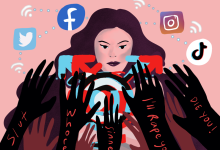
|
Getting your Trinity Audio player ready...
|
Blessing Oladunjoye, the Project Officer of the #EndMisogyny Project, highlighted tech-facilitated gender-based violence in Nigeria and presented strategies to counter the disturbing trend of misogyny in the country.
The presentation, which was based on research by Journalists for Christ International Outreach with support from WACC Global, was shared at the 69th United Nations Commission on the Status of Women (CSW) in New York, USA.
According to the report which detailed the monitoring of over 500 social media posts from January to September 2024, it reveals alarming trends in tech-facilitated gender-based violence (TFGBV) on Nigerian social media.
It highlights that there is a growing prevalence of misogyny and online harassment targeting women, particularly those in leadership positions, female journalists, and women with disabilities.
While presenting the report, Blessing shared that the research identifies various forms of digital violence faced by Nigerian women, including cyberstalking (45.5%), doxxing (10.6%), deepfakes (6.1%), sexting (3%), and revenge porn (1.5%).
She also highlighted how online misogynistic posts silence women in leadership, humiliate them, and ridicule their achievements.
She said, “The study found that TFGBV silences women, forcing many to self-censor or withdraw from digital spaces. Women in leadership roles, in particular, face disproportionate levels of abuse that create career barriers and discourage their participation in public life.”
She also noted that the psychological toll of TFGBV includes depression, anxiety, and, in extreme cases, suicide. Emphasising that “TFGBV is a direct threat to women’s communication rights,” Oladunjoye recommended that “there must be stronger digital safety standards on tech platforms to enhance privacy protections for women.”
She also pointed to the need for public reporting mechanisms for TFGBV, which has been trivialised and considered harmless.
“There is a need for policy review so that laws like Nigeria’s Cybercrimes Act and the Violence Against Persons Prohibition (VAPP) Act can be reviewed to address emerging trends in TFGBV,” Blessing Oladunjoye said.
This article was first published by bonewss.ng






